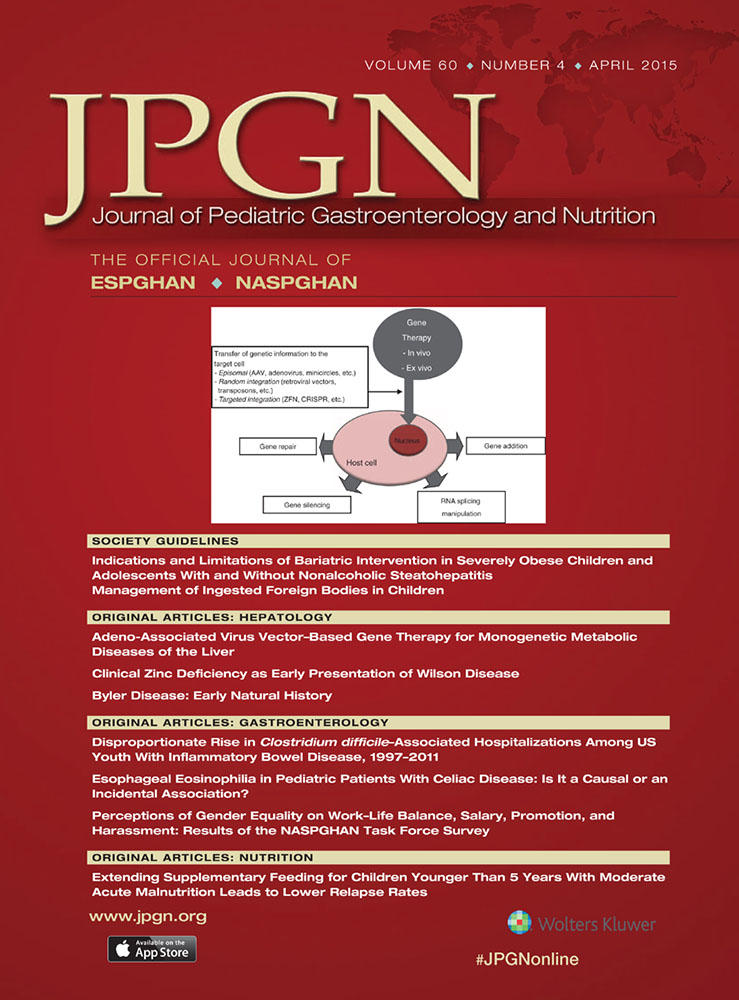Extending Supplementary Feeding for Children Younger Than 5 Years With Moderate Acute Malnutrition Leads to Lower Relapse Rates
Supplemental digital content is available for this article. Direct URL citations appear in the printed text, and links to the digital files are provided in the HTML text of this article on the journal's Web site (www.jpgn.org).
www.clinicaltrials.gov registration number: NCT00998517.
This study was supported by the Office of Health, Infectious, Diseases, and Nutrition, Bureau of Health, and the Office of Food for Peace, Bureau for Democracy, Conflict, and Humanitarian Assistance, US Agency for International Development, under the terms of Cooperative Agreements GHN-A-00-08-00001-00 and AID-OAA-A-11-00014 through the Food and Nutrition Technical Assistance II project (FANTA-2) and FANTA-2 bridge awarded to FHI360. I.T. was supported by NIH training grant T32-HD049338.
The authors report no conflicts of interest.
ABSTRACT
Objectives:
Children with moderate acute malnutrition (MAM) have a high rate of relapse and death in the year following recovery. In this pilot study, we evaluate the long-term benefits of an extended course of nutritional therapy for children with MAM.
Methods:
Rural Malawian children 6 to 59 months old with MAM, defined as a weight-for-height z score (WHZ) between −2 and −3, were provided supplementary feeding for a fixed duration of 12 weeks. The children were then studied for 12 months to assess long-term nutritional status, and compared with children initially treated only until they first reached WHZ > −2.
Results:
Compared with children treated until they reached WHZ > −2, children treated for 12 weeks were more likely to remain well nourished (71% vs 63%, P = 0.0015) and maintain more normal anthropometric indices during 12 months of follow-up; there was also a trend towards lower rates of severe acute malnutrition (7% vs 10%, P = 0.067) and death (2% vs 4%, P = 0.082). Regression modeling showed that mid-upper arm circumference and WHZ at the end of supplementary feeding were the most important factors in predicting which children remained well nourished (P < 0.001 for each).
Conclusions:
The duration of supplementary feeding for children with MAM may not be as important as their anthropometry in terms of remaining well nourished after initial recovery. The presently accepted recovery criteria of WHZ of −2 may be insufficient for ensuring long-term nutritional health; consideration should be given to setting higher recovery criteria.




